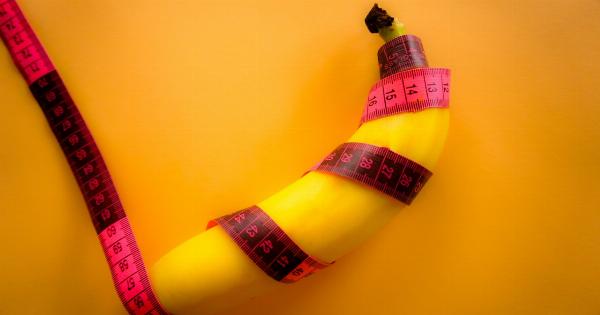Penis size is something that many men are concerned about, not only because of its impact on their sexual function but also because it can affect their self-esteem.
While genetics plays a role in determining penis size, there are also other factors that can influence penis size development in males over age. Here are ten factors that can affect penis size:.
1. Puberty
During puberty, the penis begins to grow in size and length. This process usually starts between the ages of 10 and 14 when the body starts producing increased levels of testosterone.
The amount of testosterone produced during puberty can vary from person to person, which can impact penis size.
2. Hormonal Imbalances
Hormonal imbalances can occur at any age and can impact both testosterone levels and penis size. Low testosterone levels can slow the growth of the penis, while high levels of estrogen can cause a decrease in penis size.
Certain medications and medical conditions can also affect hormone levels and lead to changes in penis size.
3. Weight
Weight can impact penis size in a number of ways. Obese men may have a smaller appearing penis because of the excess fat in the pubic area. Losing weight can help reduce the amount of fat in the pubic area, which can make the penis appear larger.
Studies have also found that men with larger waistlines tend to have smaller penises.
4. Smoking
Smoking can impact penis size development in a number of ways. Nicotine and other chemicals in cigarette smoke can constrict blood vessels, limiting blood flow to the penis. This can lead to decreased size and length.
Smoking can also cause damage to the tissue in the penis, leading to scarring, which can further impact the size and function of the penis.
5. Alcohol Consumption
Heavy alcohol consumption can impact the size and function of the penis over time. Alcohol can decrease testosterone production, which can slow penis growth.
It can also impact sexual function and cause erectile dysfunction, which can further impact penis size.
6. Age
As men age, they may experience a decrease in penis size and function. This can be due to decreased testosterone production, decreased blood flow to the penis, and other factors associated with aging.
7. Genetics
Genetics can play a significant role in determining penis size.
Men with a family history of larger penises may be more likely to develop a larger penis themselves, while men with a family history of small penises may be more likely to develop a smaller penis.
8. Medical Conditions
Medical conditions such as Peyronie’s disease, a condition that causes scarring and curvature of the penis, can impact size and function.
Other conditions such as prostate cancer, diabetes, and heart disease can also impact penis size and function.
9. Medications
Certain medications can impact penis size development in males over age. Antidepressants, for example, can reduce libido and sexual function, which can impact penis size and function.
Other medications, such as beta blockers and diuretics, can impact blood flow to the penis, which can also impact size and function.
10. Masturbation and Sexual Activity
Masturbation and sexual activity can impact penis size development in males over age. Frequent masturbation or sexual activity can cause the tissue in the penis to become desensitized, which can impact size and function over time.
On the other hand, lack of sexual activity can also impact penis size and function by causing the tissue to weaken and shrink.































